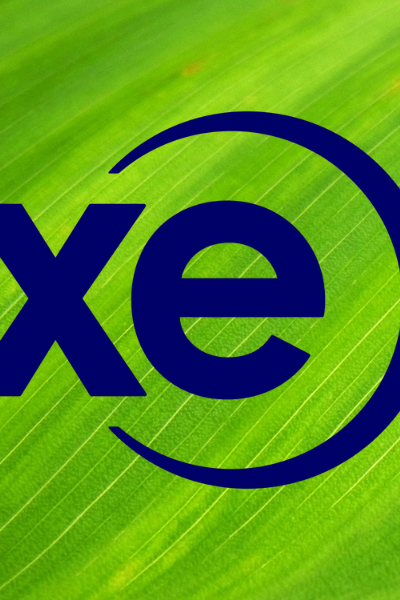Payoneer Review – Features, Transfer, and Security
Read this Payoneer review to learn about whether Payoneer could benefit you (or not) as a consumer.
Payoneer is a well-established financial services company that offers international money transfer facilities, especially for businesses. Read this Payoneer review to learn about whether Payoneer could benefit you (or not) as a consumer.
Table of Contents
Payoneer mainly offers digital transaction services, like PayPal. Though it’s not as widely used, Payoneer has a strong following among both businesses and consumers alike.
Payoneer Review at a Glance
The company was founded in 2005 by Yuval Tal, a former soldier in the Israeli military. The brand, however, is based in New York rather than Israel. A small number of private investors initially backed Payoneer.
What you can find in this Payoneer review is that currently serves customers in nearly 200 countries and handles exchanges in dozens of different currencies. The company has 14 offices around the world, including in Britain, India, and Pakistan. The company serves over 4 million customers. In 2019, Payoneer became a billion-dollar value company.
Payoneer specializes in completing international money transfers en masse. It has a powerful platform for cross-border B2B transactions in different currencies. Currently, Payoneer lists businesses such as Amazon, Google, Airbnb, Wal-Mart, and Upwork as its business clients.
The company is not a bank, but it has partner banks exclusively in Ukraine, such as PrivatBank and Alfa-Bank. Payoneer clients have access to a MasterCard debit card that’s refillable. Customers can use Payoneer to pay online, use it as an e-wallet, send money overseas individually or in bulk.
Payoneer is registered with the Gibraltar Financial Services Commission as a remitter in order to gain access to the European Union single market as a payment services provider.
Payoneer Review – The Pros
Here are some of the biggest perks from this Payoneer review offers customers:
Mid-Market Exchange Rates
Perhaps the most important feature of any international money transfer service, at least to some, is how the company marks up the exchange rate. Banks usually charge more compared to how a currency floats on the market. Payoneer doesn’t charge as much as banks. It’s doesn’t exactly charge the market rate but rather settles on a mid-market value for currency exchange.
Customers can benefit a lot here when purchasing higher-value currencies. With Payoneer, you only get about a 2 percent fee above only the mid-market rate. It’s advantageous considering this can go as high as 2.75 percent with some banks.
Low Fees for Domestic Transactions
Payoneer charges for international money transfers, but domestic transactions are almost free. In addition, you can send and receive funds for free between local accounts in most countries.
Reasonable Minimum Transfer Amount
Payoneer offers low minimum transfer amounts to both business and personal services. The minimum transaction amount to make a payment is just $50. For billing a customer, the amount is a measly $20, which is very low compared to what some competitors offer.
Multiple Payment Options
Customers can use Payoneer to send, receive and make payments online. One defining feature is the ability to send mass payments internationally. Customers get a Payoneer account to deposit funds. However, there’s also an option to transfer money directly to a bank account or even an ATM. The latter two options have a charge while using a Payoneer account doesn’t. But these are not the only pros from this Payoneer review.
B2B and Freelancer Friendly
Payoneer is used by major freelancing platforms like Upwork due to several benefits for self-employed people and businesses. Customers can send B2B escrow payments using Payoneer. Freelancers can use the platform to send multiple transactions at once or receive them.
Available in Many Countries
Payoneer has wide international acceptance as it’s available in nearly 200 countries, or all over the world. This is more than most other online payment methods support. If you want to send money in a lesser-known currency, the chances are high that Payoneer supports it.
Payoneer Review – The Cons
Not everything about Payoneer is positive. In this Payoneer review are some of the drawbacks of using the service:
High Exchange Rate Fee Compared to Some Other Payment Companies
Payoneer offers customers lower currency conversion rates than banks. However, when compared to similar payment providers, Payoneer’s fees are rather high on this front. This is not a major downside when you want to transfer to and from bank accounts. But if you are primarily working digitally, Payoneer might not be the cheapest international transfer option.
Limits on Making a Payment
One big issue with Payoneer is that new customers must first receive funds from another party to actually make a payment. New users have to get a transaction through the Global Payment Service or from one of the company’s partners’ businesses before making a new payment.
Some Regulatory Issues
Payoneer is not a bank and thus isn’t regulated as one by any country. This has led to several infamous run-ins with financial regulators in different countries. In France, Payoneer was investigated for possibly facilitating users to avoid local taxes. The company had to withdraw from India once it came under legal scrutiny but has since re-entered the market with products uniquely catered to local customers.
Customers who are concerned about regulatory issues and financial guaranteed might be worried that Payoneer is not regulated in the same way as a bank. While potential customers could be concerned, there’s little reason to panic. Payoneer has stated that it is “a regulated payment company.” Here we end the cons from this Payoneer review.
Payoneer Review – Conclusion
Payoneer is one of the leading e-wallet services out there. The service offers convenience and simplicity to users who need to send funds across borders, though Payoneer is not without some drawbacks.
The company is registered and well-known, which is always a major plus when it comes to money transfers. Customers can expect mid to low fees on international funds transfers. There are some limits to when you can make a payment. Also, fees can be quite high when you are transferring to a bank. Still, Payoneer makes things relatively affordable and convenient compared to most other services.
Payoneer is suitable for businesses and individuals, especially if you are a freelancer. You can send or receive mass funds using Payoneer instead of paying for each individual transaction. That’s not the only perk. Exchange rates are charged at mid-market, and domestic transfer fees are almost nonexistent.
All these things definitely make Payoneer a money transfer service to try out if you are looking for a reliable international payment emitter. We hope that this Payoneer review helped you to understand better how this program works.


